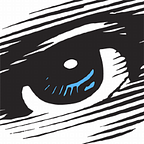Don’t Worry Darling (2022, Dir. Olivia Wilde)
Synopsis:
Living out the perfect 1950s American Dream in a small desert community, Alice (Florence Pugh) and Jack (Harry Styles) seem happy in their roles as housewife and employee of the Victory Project, brainchild of Frank (Chris Pine) who not only is in charge of the project but also the small community of husbands and wives. After one of the other wives appears to have a breakdown, Alice too begins to be effected by strange events and visions. Concerned that everything in their community is not quite what it seems, she begins to actively question what’s ultimately going on with the Victory Project, eventually leading to a shocking discovery.
Films with a major plot twist are often difficult to sell. How much can or should studios reveal about the plot during the trailer, particularly if the twist doesn’t arrive until later on in the film? I originally assumed this was simply a 50s drama when I first saw the poster and only really became intrigued about the film when I belatedly saw the trailer. Add to that, rumors of a troubled production with disagreements between Florence Pugh and director and co-star Olivia Wilde (all of which were denied by others working on the production), Shia LaBeouf’s replacement near the start of filming by Harry Styles and it’s not hard to see why it didn’t do as well as expected at the box office or with the critics. This is a great shame because the film, which has a certain amount in common with the downbeat conspiracy/techno thrillers of the 1970s, is actually really good.
The look of the film, with its desert community, reminiscent of The Truman Show or Patrick Magoohan’s The Prisoner, with its 1950/60s sheen and pastel colors is both superb and considering it’s only Olivia Wilde’s second film as a director, extremely visually assured. The scenes of Pugh’s character going into the forbidden desert wilderness reminded me of both the original Westworld film and Capricorn One, whereas the creepy black and white visions Alice has resemble a Bugsby Berkeley dance number filmed by David Lynch. Aided by cinematographer Matthew Libatique’s stunning photography, Wilde creates some memorable and disturbing images and the film slowly builds up a sense of isolation and unease, just underneath the surface. John Powell’s superb score, principally featuring female vocal sounds edited to create rhythms and textures also helps to maintain this sense that something isn’t quite right.
I’ve been a fan of Florence Pugh’s work since I saw her in the 2018 TV adaptation of John Le Carré’s The Little Drummer Girl. An extremely talented actor and no stranger to roles that require her to move through a range of extreme emotions, this film gives her another chance to show her abilities, with the character moving from flirtatiousnesses to wide-eyed panic and fear.
Harry Styles’ performance came in for a fair amount of criticism on the movie’s release, with some reviewers finding him “dull”. It is a low key performance to be sure, though in my opinion that’s not particularly a bad thing, given the character. I personally can’t imagine how the role would have worked with LaBeouf, who is a much more intense screen presence, in the part — that would have deflected too much attention away from Pugh’s character and wouldn’t have served the story as well. As it is, his work here fits the role just fine and he deserves credit for taking on a role that is the polar opposite of his pop star persona.
Chris Pine, clearly relishes his opportunity to play the manipulative and evil Frank. Like so many other good-looking leading men, it doesn’t take much to turn that charming screen presence on its axis and use it to create a much more disturbing character. It’s an impressive performance which constantly has an air of menace floating just under the surface and keeps you riveted whenever his character is onscreen.
There are a bunch of great supporting turns as well, notably from Gemma Chan as Frank’s wife and Wilde herself as Alice’s neighbor, Bunny, who knows more than she’s letting on, but it’s Pugh and Pine’s performances that are especially memorable.
The film also received a certain amount of criticism for being derivative, with critics comparing the plot to other films such as The Stepford Wives. As with Gareth Edwards’ The Creator, which also received the same criticism, I feel that criticizing films (particularly those that fall, however loosely, within the mystery/horror/sci-fi genres) for being influenced by other films within the same genre is a moot point — all films are influenced by others to some degree or another. The question is really do they take those influences and reappropriate them in an interesting way and I feel that Don’t Worry Darling does. If its twist doesn’t totally surprise you then, that’s simply because it’s one that’s been used a few times over the years (including by me in one of my novels). That you can probably guess where the story is going doesn’t make it any less enjoyable. Isn’t this also what fans of a particular genre love, anyway — waiting to see whether what we think is going to happen actually does? In this case it’s a great shame that rumors about the production seem to have overshadowed people’s reactions to the actual film. It’s well made, with some stunning and at times disturbing imagery and with some great performances. Certainly, you owe it to yourself to watch it and make up your own mind.
